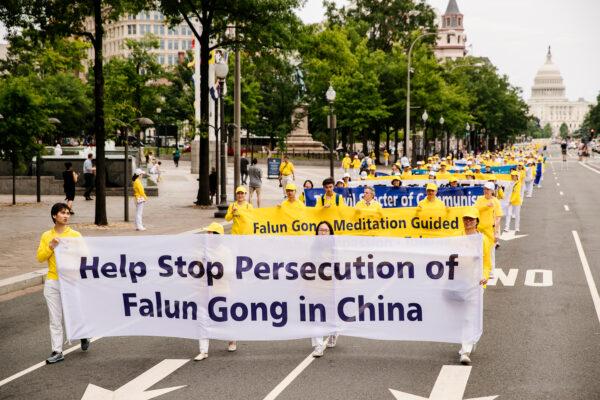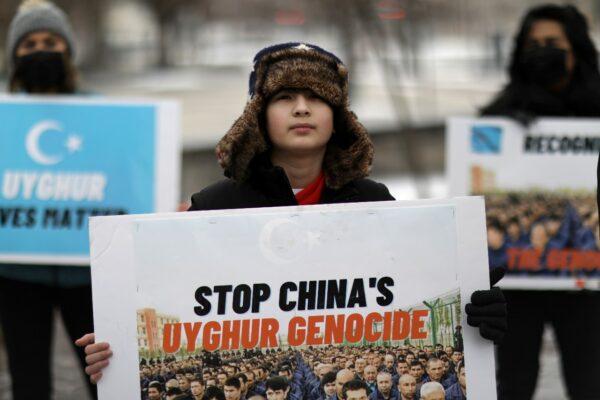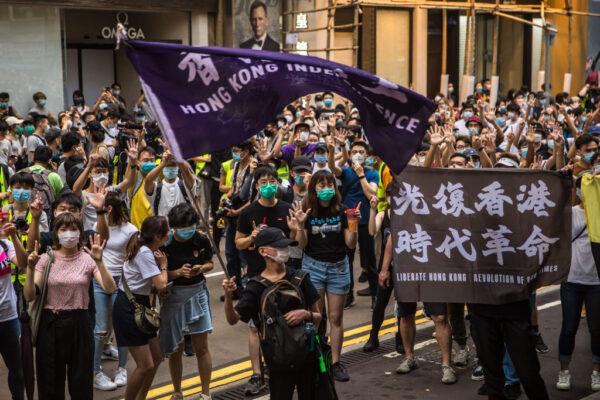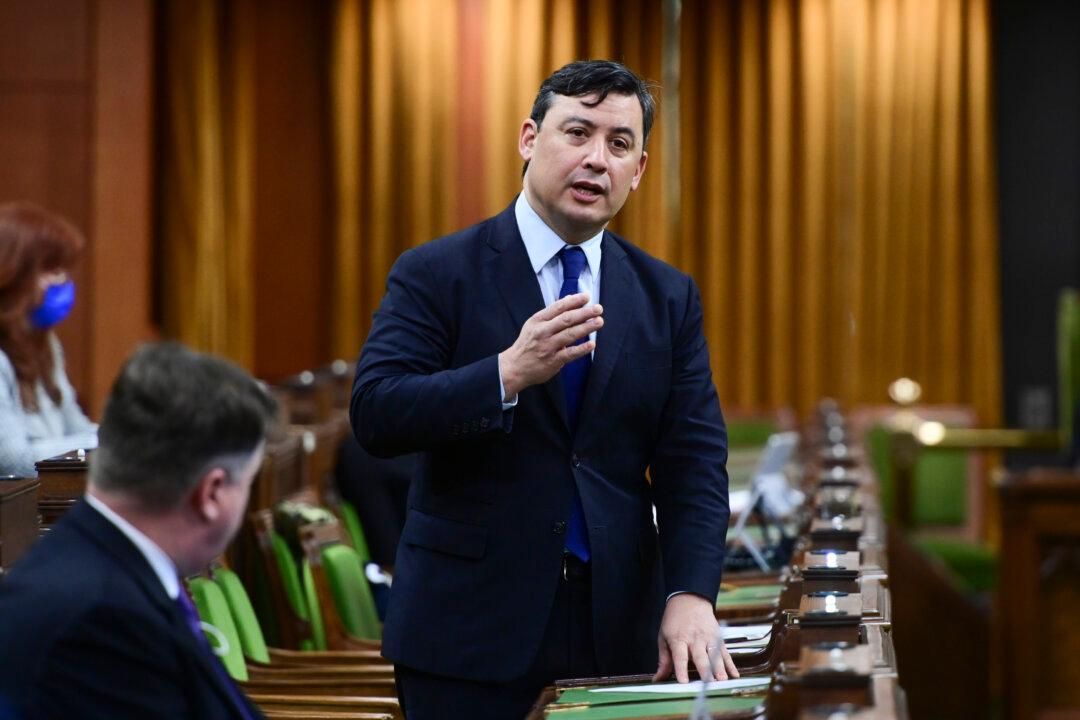China has arbitrarily detained two Canadian citizens for over two years, threatened Canadian interests, violated an international treaty protecting freedoms in Hong Kong where tens of thousands of Canadians live, and committed genocide against innumerable Chinese citizens.
These are all good reasons why Canada needs to take a stronger stance in dealing with the Chinese Communist Party (CCP) and the Beijing government under its control, Conservative MP Michael Chong says.
“Whenever Canada gets threatened by China, the current government’s approach is passiveness and equivocation,” Chong told NTD Television, an Epoch Times affiliate media.
“If we are asking other countries, other allies, other partners to help us in dealing with the threats that the Chinese communist regime is posing to Canada, then we have to stand up for ourselves, and we haven’t been doing that. If you look at a smaller country, similar in size to Canada, like Australia, they’ve been taking a much stronger stance on Australian-China relations than Canada has on Canada-China relations.”
A motion sponsored by Chong to declare China’s abuse of Uyghurs a genocide was passed unanimously in the House of Commons on Feb. 22, 2021. Prime Minister Justin Trudeau and his cabinet abstained from the vote.
“So to that end, we are calling on the government to seek the relocation of the next winter’s Beijing Olympics. We’re asking them to encourage other allies to do the same thing. We’re also asking them for new measures to ban the importation of products from Xinjiang region. There’s evidence that these products are being produced through forced labour.”

Persecution of Ethnic and Religious Minorities
Chong said that when Canada and other Western countries welcomed communist China into the global trade and investment system, they assumed that economic developments would steer the authoritarian regime to become democratic—which didn’t happen.“All they have done in the last 30 years is use their newfound prosperity to reinforce their authoritarianism, to reinforce their persecution of minorities, such as Falun Gong practitioners,” he said.
“We have to acknowledge that we were wrong on that assumption, and come forward with a new approach, a new policy on authoritarian regimes like China, that better defend human rights, better protect our citizens, our companies,” he said.
Falun Gong, also known as Falun Dafa, is a spiritual cultivation based on the principles of truthfulness, compassion, and tolerance that had attracted around 70-100 million adherents in China by the late 1990s, according to official Chinese estimates.
Other than Falun Gong adherents and Uyghurs, there are numerous other rights infractions being perpetrated by the CCP, Chong said.
“There are also long-standing human rights abuses against the Tibetan people, just south of Xinjiang. There are violations of the rights of other minorities in mainland China as well as violations of rights and international treaties in Hong Kong,” he said.
“I think the human rights abuses are serious and need to be treated more seriously by countries like Canada.”

Hong Kong, Huawei, Two Michaels
Chong said Canada can do more regarding the Beijing’s national security legislation in Hong Kong—in violation of the “one country, two system” principle—and the subsequent crackdown on the pro-democracy movement in the city, including imposing Magnitsky sanctions on the Hong Kong officials responsible.“Some of the measures the government has taken are adequate, but they’re not enough. The government has to make it clear that this isn’t acceptable, and they have to do so by imposing Magnitsky sanctions on those Hong Kong officials responsible for these violations of international law,” he said.
“There’s evidence that Huawei is a threat for national security [because] under Chinese law, they’re required to co-operate with intelligence gathering with state security of China,” he said.
“And most importantly, in respect to the Uygur genocide … there’s evidence that they are helping to build the surveillance system that is an essential part of the Chinese communist regime’s tools to perpetrate the genocide in Xinjiang.”

Chong said he’s very concerned about the recent trials of Michael Kovrig and Michael Spavor, who have been detained in China since December 2019.
“Trials in China are a large show. The conviction rate is essentially 100 percent,” he said.





